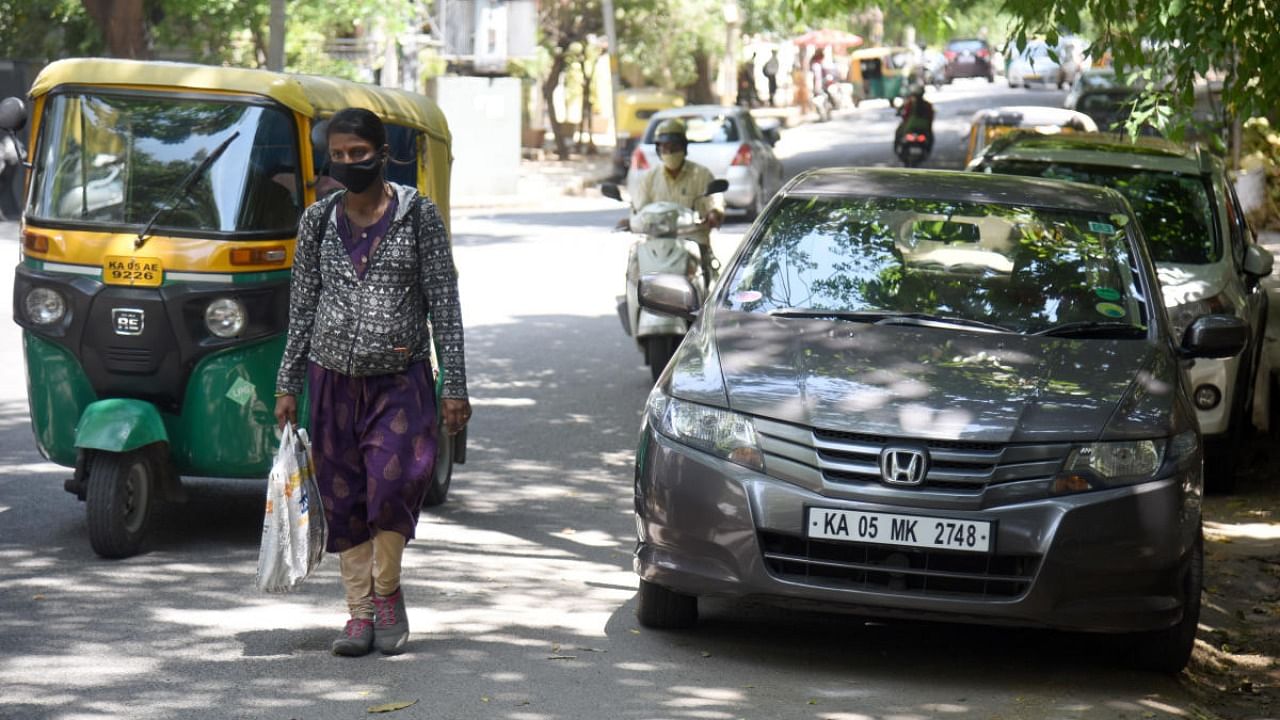
Many Bengulureans, particularly those managing the metropolis, are elated over their beloved city securing the top rank in the Ease of Living Index (ELI) 2020, following a survey of Indian cities by the Ministry of Housing and Urban Affairs. Chief Minister B S Yediyurappa attributed the achievement to the “Bengaluru model of development of citizen-centric initiatives and delivery of services”. While taking legitimate pride in being part of ‘the most livable city’ of the country, a reality check would be in order.
Two Assessment Frameworks were developed by the ministry to assess the progress made by 111 cities across the country that included all the smart cities (100) and state capitals: 1) Ease of Living Index (ELI) and 2) Municipal Performance Index (MPI). The ELI measures the wellbeing of citizens on the basis of four broad parameters: Quality of Life carrying a weightage of 35%, Economic ability (15%), Sustainability (20%) and Citizen Perception Survey (30%).
Ranking has been done separately for cities with a population of 10 lakh plus and those under it. Bengaluru has topped the list under the former with a score of 66.7, closely followed by Pune, scoring 66.27.
To get a true picture of the livability of a city, we must first understand the methodology followed to assess the ease of living. The ELI score is arrived at by calculating the weighted average of the scores of all the four parameters mentioned above. For instance, the indicators used to assess the Quality of Life include education, health, housing, drinking water, solid waste management, mobility, safety and recreation; for Economic ability, the indicators are the level of economic development and economic opportunities, and for Sustainability-environment, green spaces and air quality, among others.
Let us now look at the scores obtained by Bengaluru in respect of each of the four parameters. Under economic ability, it emerges at the top with a score of 78.82. But the ranking slides sharply under the other three: Quality of Life-12th with a score of 55.67, Sustainability-13th (59.97) and Citizen Perception Index-18th (78). Thus, Bengaluru’s first position in the overall ranking is facilitated in an overwhelming measure by its economic ability. There can be no dispute about its economic strength on account of its consistent performance in the IT sector and a high level of GDP. In terms of quality of life and sustainability, however, there is no cause for celebration. Even in the case of citizen perception, Bengulureans have not been kind in giving their city a good rating.
It is interesting to note that the Municipal Performance Index presents an altogether different picture. Here the ranking is based on five verticals: 1) Services with a weightage of 30%, 2) Finance (20%), 3) Planning (15%), 4) Technology (15%), and 5) Governance (20%). In the million plus category, the top rank is secured by Indore with a score of 66.08, followed by Surat (60.82) and in under a million, New Delhi Municipal Corporation is ranked first (52.92) and Tirupati second (51.69). Bengaluru which occupied the pride of place in EOLI, is ranked at a lowly 31.
The BBMP does not figure high under any of the parameters: Services-ranked 25, Finance and Planning--worse at 40 and 36, respectively, and slightly better in Governance, which is still not good at 8. What comes as a surprise is that the civic body, which takes pride in setting up the first hi-tech war room in the country to tackle the Covid-19 pandemic, should be placed at No. 25 in technology.
Lagging behind
On the whole, except for economic ability, Bengaluru lags behind many other cities in the country in every other parameter. In the case of economic strength, due credit must be given to private enterprise including foreign investments, especially in the IT and other technology and service sectors. The state has played more of an enabling role which is no doubt important. What should concern us really is why a metropolis renowned as a world technology hub not able to provide a quality of life befitting its image? This in turn gives rise to the following questions:
Why are we not able to build roads which don’t give way to potholes?
Why are our footpaths in such a bad state, making them pedestrian-unfriendly?
Why is our street lighting so poor, making walking at nights unsafe, especially for women?
Why can’t we manage our waste disposal efficiently?
Why can’t we get simple services like issue of a khata certificate, birth and death certificates, and a building license or registering a document without harassment and corruption?
Why are the authorities turning a blind eye to illegal constructions that exert pressure on city’s infrastructure and makes life in neighbourhood uncomfortable?
More such questions can be added to the list. The fact is, these simple things are what contribute to ease of living, they are all doable and at little cost. Then why are we not doing them? If cities like Indore and Surat can keep their cities clean and provide municipal services without harassing their citizens, why can’t Bengaluru?
If scores under all parameters are taken into consideration, the performance of these two cities is commendable, with Indore securing the first position in Finance and Technology, second in Services and Governance and fourth in Planning. Surat figures in the first nine in all parameters. Pune and Ahmedabad, placed at second and third in EOLI, score far above Bengaluru under all indicators except economic ability.
To conclude, if Bengaluru is to sustain its economic vibrancy and global profile, and continue to attract the best of talent in science, technology and entrepreneurship, it must pay serious attention not only to Ease of Doing Business but to Ease of Living. Equally important is to improve efficiencies in the functioning of the city institutions - BBMP and those delivering services such as water, electricity, public transport and regulatory services. The government must accord high priority to strengthening of the civic institutions.
(The writer is retired Chief Secretary, Government of Karnataka)